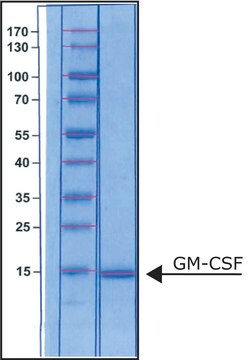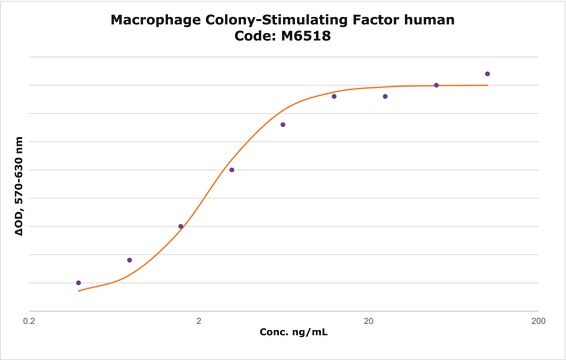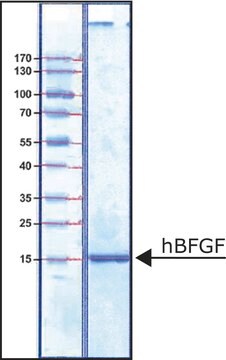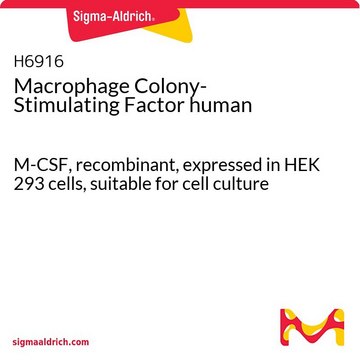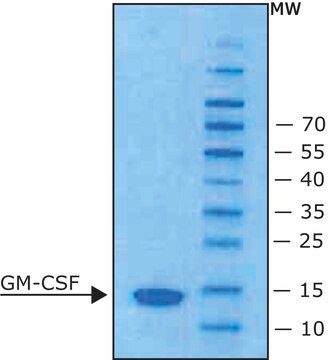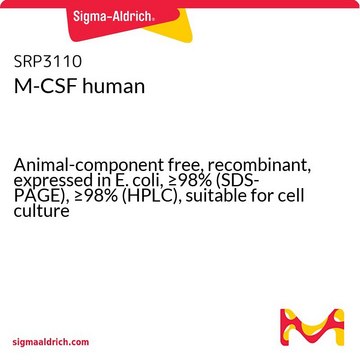H5666
Granulocyte-Macrophage Colony-Stimulating Factor human
HumanKine®, ≥95% (SDS-PAGE), recombinant, expressed in HEK 293 cells, lyophilized powder, suitable for cell culture
Sinónimos:
GM-CSF human
About This Item
Productos recomendados
product name
Granulocyte-Macrophage Colony-Stimulating Factor human, GM-CSF, recombinant, expressed in HEK 293 cells, HumanKine®, suitable for cell culture
origen biológico
human
Nivel de calidad
recombinante
expressed in HEK 293 cells
Análisis
≥95% (SDS-PAGE)
formulario
lyophilized powder
potencia
≤5 ng/mL EC50
calidad
endotoxin tested
mol peso
dimer 15-36 kDa (glycosylated)
envase
pkg of 5X10 μg
pkg of 10 μg
condiciones de almacenamiento
avoid repeated freeze/thaw cycles
técnicas
cell culture | mammalian: suitable
impurezas
≤1 EU/mg
Nº de acceso UniProt
temp. de almacenamiento
−20°C
Información sobre el gen
human ... CSF2(1437)
¿Está buscando productos similares? Visita Guía de comparación de productos
Descripción general
Aplicación
Acciones bioquímicas o fisiológicas
Precaución
Forma física
Nota de preparación
Nota de análisis
Información legal
Código de clase de almacenamiento
11 - Combustible Solids
Clase de riesgo para el agua (WGK)
WGK 3
Punto de inflamabilidad (°F)
Not applicable
Punto de inflamabilidad (°C)
Not applicable
Certificados de análisis (COA)
Busque Certificados de análisis (COA) introduciendo el número de lote del producto. Los números de lote se encuentran en la etiqueta del producto después de las palabras «Lot» o «Batch»
¿Ya tiene este producto?
Encuentre la documentación para los productos que ha comprado recientemente en la Biblioteca de documentos.
Los clientes también vieron
Artículos
Read article on hematopoietic cytokines and hematopoiesis
Nuestro equipo de científicos tiene experiencia en todas las áreas de investigación: Ciencias de la vida, Ciencia de los materiales, Síntesis química, Cromatografía, Analítica y muchas otras.
Póngase en contacto con el Servicio técnico